NIA to issue instant national ID card from Sept 15
- Posted on
- Comment
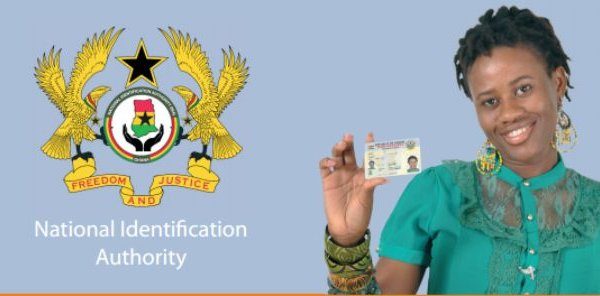 Barring any unforeseen circumstances, the National Identification Authority (NIA) will issue the first of the proposed Ghana National Identity Card on September 15, 2017.
Barring any unforeseen circumstances, the National Identification Authority (NIA) will issue the first of the proposed Ghana National Identity Card on September 15, 2017.
According to Prof. Kenneth Agyemang Attafuah, Executive Secretary of the NIA, persons living in areas with good internet coverage will get their cards within 10 minutes of their filling the appropriate forms, while those with unreliable or non-existent coverage will have the printing of theirs deferred for a short period.
“You can expect to see a card on the 15th of September, 2017, when we roll out” Prof Attafuah assured at a media interaction on Monday June 12, 2017.
“We want to implement an instant card issuance system. You register with us and within 10 minutes maximum you get the card and walk away.”
It would be recalled that the Vice President, at a meeting with key stakeholders in late January, announced government’s decision to implement three key programmes required to formalise the Ghanaian economy and set an end of year timeline for their implementation.
They are a National Identification System, a Digital Addressing System and Interoperability between the telcos, banks and any other payment systems.
Four committees set up to analyse the various processes required to set up a national ID system have since submitted their report, and the President, Nana Addo Dankwa Akufo-Addo, has directed the NIA to immediately engage with Identity Management Systems (IMS) Limited, a private identity management company to “agree on the modalities to ensure the efficient roll-out of the National Identity System (NIS) project not later than 15th September, 2017.”
The NIA has accepted the challenge and is poised to meet the deadline, although the time it takes to issue a card will be determined by a number of factors, including internet connectivity, Prof Attafuah pointed out.
“There may be areas in this country where internet connectivity may be a challenge. In such locations, there would be deferred printing – it may be a day, it may be a couple of days. In such circumstances deferred printing may be inevitable.
“So there are options: people will get the cards on the 15th. Those who are able to register on the 15th and from that day onwards anyone registering can expect to get the card instantly, because that is what we are aiming at.
“I must qualify that to say in those rare circumstances where sometimes as in my village, there may not be internet connection, that there may be a delay by a day or two, or just a few hours. Sometimes internet is not the most stable.”
The NIA, Prof Attafuah said, is working with key stakeholders like the National Information Technology Agency (NITA) to identify areas with low or non-existent internet availability to plan appropriately for the capturing of data and issuance of cards for residents in those communities.
“We’re working with NITA and the technical committee to map out this country and colour code in terms of availability of data connectivity so that before we roll out we know where connectivity may be a problem and then to develop auxiliary measures to address those deficits in connectivity.”
-pfm
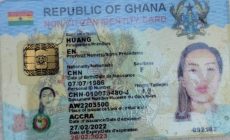
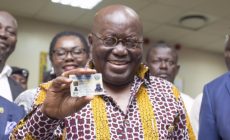
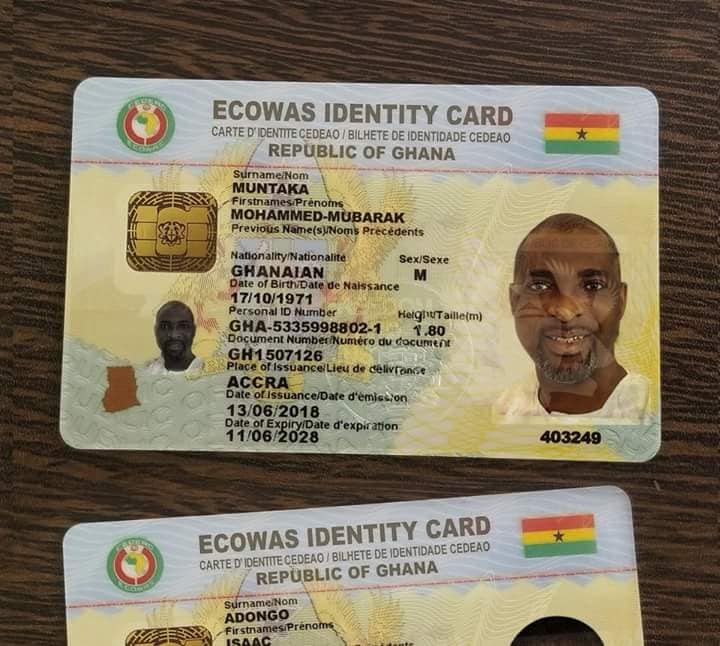
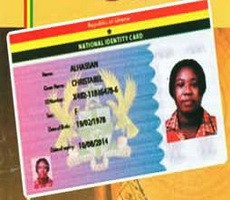






 (Selorm) |
(Selorm) |  (Nana Kwesi)
(Nana Kwesi)